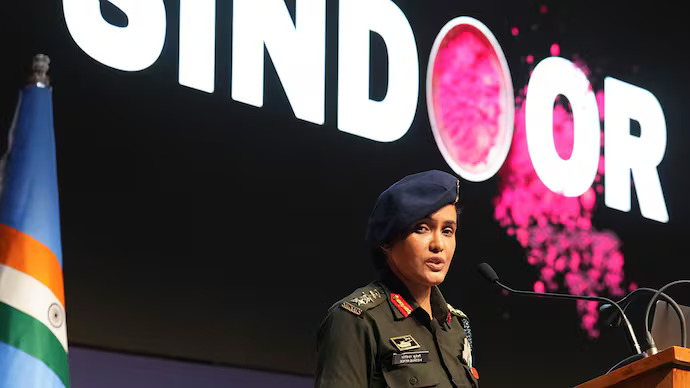“Sophia Qureshi. Naam Toh Suna Hi Hoga!”
If someone says this today, it’s no exaggeration — it’s fact.
On May 7, as the nation erupted in celebration over the success of Operation Sindoor, a daring overnight offensive that dismantled terrorist bases across the border, a composed voice delivered the briefing to the nation: Colonel Sophia Qureshi.
History was being made live on national television.
Far away from the press rooms and headlines, in the heart of Bengal, a quiet nostalgia stirred. Because for thousands of young Bengalis, Sophia Qureshi wasn’t a new name. Her story, her strength, her voice — they had encountered all of it years ago, in a lockdown-era YouTube session most of the world has forgotten, but Bengal hasn’t.
It was 2022 lockdown. The world had shut down. Exams were cancelled. Careers felt like they were dissolving into screens. In this void, a digital initiative by the West Bengal Minority Development and Finance Corporation (WBMDFC), under IAS officer Dr. PB Salim, attempted something bold — to bring guidance directly to the youth.
A 99-episode career series was launched. Bureaucrats, artists, officers, thinkers — all logged in to speak directly to Bengal’s future.
One Saturday evening, the notification appeared: “Guest Speaker: Colonel Sophia Qureshi, Indian Army.”
The quiet commander who inspired loudly
Back then, she wasn’t a national face. She was posted at Fort William, Kolkata. That day, she logged into YouTube not as a decorated commander, but as a mentor.
Her words were simple but powerful: “Boys or girls, both can wear the uniform.”
And just like that, she cracked open a world of possibilities.
She didn’t offer slogans. She offered steps: how to crack the CDS exam, how to earn an NCC certificate, and how to train for the armed forces — especially as a woman.


